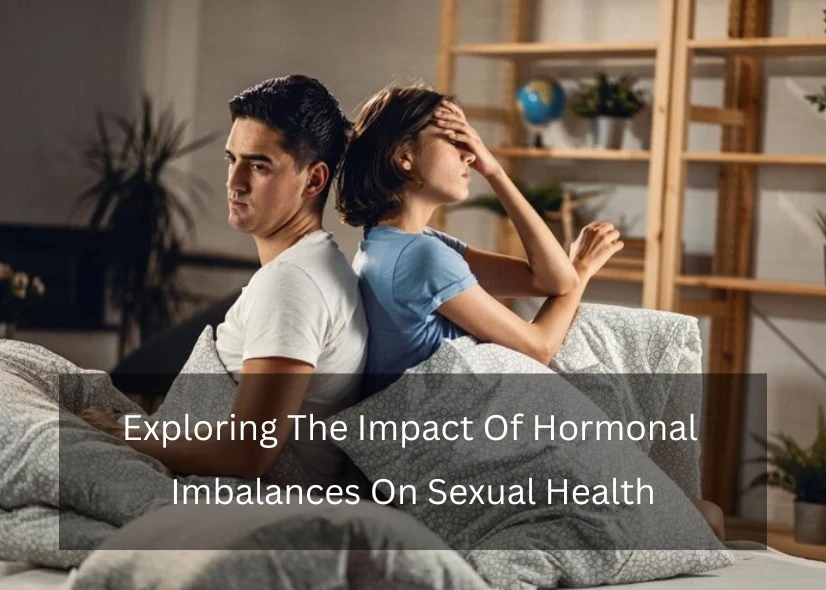Sexual well-being is a complex aspect of human health, and the delicate interplay of hormones significantly influences our sexual function and desire. Hormones act as chemical messengers, orchestrating various physiological processes, and any disruption in their balance can have profound effects on sexual health. In this exploration, we will get to know the connection between hormones and sexual well-being, understanding the impact of hormonal imbalances, and how achieving hormone balance can enhance sexual health.
Understanding The Impact Of Hormonal Imbalances On Sexual Health
Estrogen And Testosterone Dynamics
- Key Players in Desire : Estrogen, predominantly found in females, and testosterone, primarily present in males, are key drivers of sexual desire and function.
- Imbalances and Consequences : Disruptions in the delicate balance of these hormones can lead to a range of sexual health issues, such as decreased libido, erectile dysfunction, and other performance-related concerns.
Progesterone’s Role In Libido
- Beyond Reproduction : Progesterone, often associated with the female reproductive system, also contributes to maintaining a healthy libido.
- Fluctuations and Effects : Fluctuations in progesterone levels, especially during the menstrual cycle or menopause, can influence sexual desire and responsiveness, highlighting the importance of hormonal stability.
Enhancing Sexual Well-Being Through Hormone Balance
Hormone Replacement Therapy (HRT)
- Restoring Balance : HRT emerges as a viable option for restoring hormonal balance and addressing sexual health concerns.
- Considerations : However, careful consideration and consultation with healthcare professionals are essential to weigh potential risks and benefits, as individual responses to HRT can vary.
Lifestyle Modifications For Hormonal Health
- Holistic Approach : Adopting a healthy lifestyle, encompassing regular exercise, a balanced diet, and stress management, can positively impact hormonal balance and, consequently, sexual well-being.
- Mental and Emotional Aspects : Comprehensive well-being involves not only addressing hormonal imbalances but also focusing on mental and emotional aspects, recognizing the interconnectedness of mind and body.
Common Causes Of Hormonal Imbalances
Age-Related Changes
- Natural Progression : Hormonal fluctuations are a natural part of the aging process, impacting sexual health in both men and women.
- Managing Changes : Understanding and managing these changes are crucial for maintaining a satisfying sexual life as individuals navigate different life stages.
Medical Conditions And Medications
- Underlying Health Factors : Certain medical conditions, such as diabetes and thyroid disorders, can contribute to hormonal imbalances.
- Medications and Hormones : Medications, including hormonal contraceptives and antidepressants, may also influence hormonal levels, necessitating awareness and management.
Influence Of Hormonal Imbalances On Male Fertility
Testosterone And Sperm Production
- Vital for Reproduction : Testosterone, a key hormone in men, is vital for sperm production and overall reproductive health.
- Fertility Challenges : Hormonal imbalances in men can lead to reduced sperm quality and fertility issues, underscoring the importance of hormonal health in male fertility.
Addressing Male Fertility Concerns
- Comprehensive Approach : Understanding the connection between hormonal imbalances and male fertility is crucial for couples facing conception challenges.
- Professional Guidance : Seeking professional guidance and exploring fertility treatments may be necessary for those dealing with hormonal-related fertility issues, emphasizing the need for a comprehensive approach.
Recognizing the intricate link between hormones and sexual well-being empowers individuals to proactively address issues related to hormonal imbalances. By exploring interventions such as hormone replacement therapy, making lifestyle modifications, and seeking professional guidance, individuals can enhance their sexual well-being and overall quality of life. Acknowledging the common causes of hormonal imbalances and their influence on male fertility further emphasizes the importance of a comprehensive approach to sexual health.
In essence, a holistic understanding of the connection between hormones and sexual well-being allows individuals and healthcare professionals to navigate the complexities of hormonal imbalances, fostering a proactive and informed approach to maintaining a satisfying and healthy sexual life.

